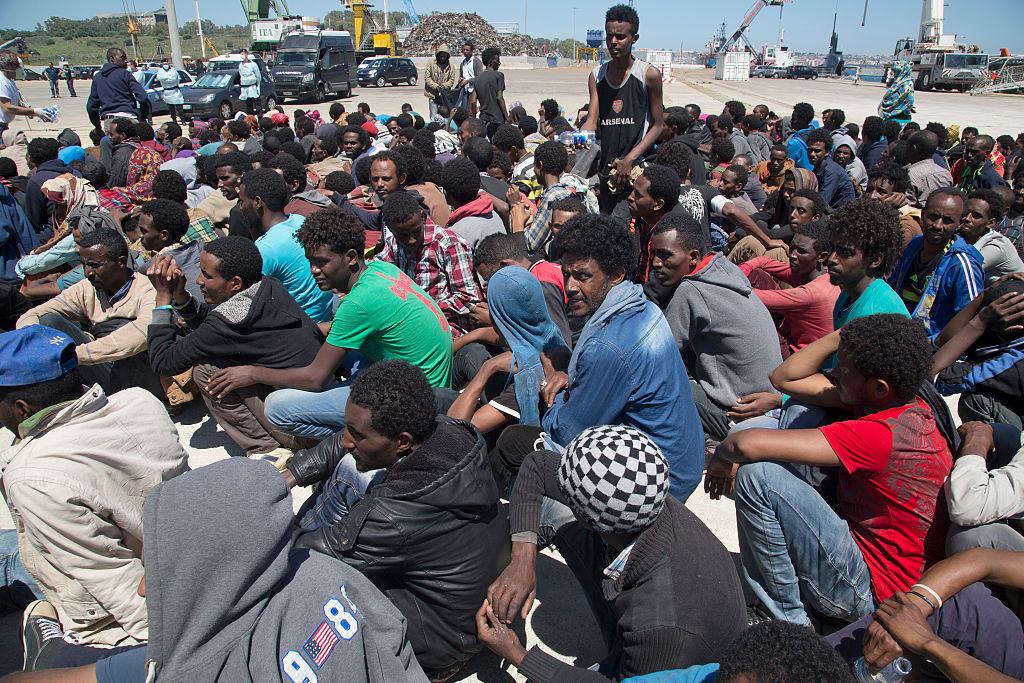The European Union has no “foreign minister.” It does, however, have the bureaucratically named “High Representative of the Union for Foreign Affairs and Security Policy.” The position generally represents the European Commission – and increasingly, the European Union – abroad, though the holder of the office cannot really speak for all of the individual EU member states unless given the go-ahead via some sort of unanimous consent.
The current holder of the office is former Estonian Prime Minister Kaja Kallas, who was newly sworn in with the rest of the commission earlier this month. Her forceful condemnation of Russia’s invasion of Ukraine, along with Estonia’s genuinely commendable increases in defence spending under her watch, turned her into a Continental figure and thus led her to her current office.
During her confirmation hearings, she made clear that her priority would be helping to shepherd Ukraine into the European Union and keeping up the pressure on Russia. But this of course is going to run into an issue: the European Union is unlikely to pick up the America-sized tab if the United States, under the incoming administration of president-elect Donald Trump, decides to turn its attention toward China and its own southern border.
When asked about how she would handle this discrepancy, Kallas said the following: “If the United States is worried about China, they should first be worried about Russia.” She later furthered her statement: “If we look to history, isolationism has never worked well for America.” The latter is a fundamental misreading of American history. American un-involvement with foreign alliances was its default foreign policy until the 20th century, and it worked extremely well for the United States – but her former statement is more concerning, as it is an incredible misunderstanding of the challenges facing Europe today.
For the United States, China is overwhelmingly more threatening than Russia. Its economy is about ten times as large as Russia’s (by contrast in 1939, the economy of Benito Mussolini’s Italy – seen by far as the weakest member of the Axis alliance – was about 37 per cent as large as Adolf Hitler’s Germany), which makes China far more able to challenge the United States in this regard. And while Russia has significantly more nuclear weapons, China has about 500 and is ratcheting up production, which means it easily has enough to end the United States and is therefore essentially just as much of a nuclear threat as Russia.
Plus, there is no comparison to something like Hitler’s Germany and Mussolini’s Italy, where the Allies attacked Italy, the latter, weaker country first. This was due partially to geography (Italy, jutting into the Mediterranean, was the economically and geographically weak underbelly of the Axis). But Russia is no weak underbelly for China; if anything, Russia falling could be a boon for China, as it could scoop up the immense untapped potential of Russia’s Siberia – in terms of land, minerals, and crucially, water – in the event of total Russian collapse.
The situation is dramatically reversed for the European Union, or at least for its eastern part. Russia, which sits on its border, genuinely does threaten the EU. It clearly would enjoy getting the Baltics and Poland back under its sphere of influence, which explains why the Baltics are significantly increasing their defence spending; they, along with Poland, are some of the highest spenders (as a percent of GDP) on defence in the entirety of NATO.
But the problem for Kallas is that much of the rest of Europe is not acting like Russia is a serious threat. They are saying the right things but they are acting the wrong way. They like their defence spending where it is, but it cannot stay that way if they are to take Russia seriously. As former Trump administration official Elbridge Colby recently wrote, “2 per cent [of defence spending] is now widely considered inadequate”. And many member states only get to that benchmark via fuzzy math or promises. The UK, for example, said it would reach 2.5 per cent by 2030, which in political-speak is the same as saying, “Never”. Sweden said it would reach 2.8 per cent the same year.
You would not notice this if you watch the TV regularly. You will see French President Emmanuel Macron, along with many other politicians, lambasting Russia’s actions. The divide comes from the fact that the Baltics, only recently freed from totalitarian Soviet control, are too young to forget what they went through. But Western European states like France are too old to forget that Russia does not have a history of trying to conquer Western Europe. After the Napoleonic Wars, Russia marched into Paris – only to simply go home again after telling France to stop messing with its stuff.
None of this is to defend Russia, nor is it to remotely suggest that the Baltics should accept their lot and strike some sort of deal with Putin. But individuals like Kallas should understand that Russia is simply not a major threat to the United States. Even if it were to take more of Ukraine, America’s national interest would not be fundamentally threatened. But nor is it, fundamentally, a major threat to Western Europe. It’s not hard to explain: Russia is weaker than the Soviet Union, has less resources than the Soviet Union, and can barely get through Ukraine. It is not threatening France, much less the continental United States.
If Kallas wishes to convince the United States to focus on Russia over the next four years, she needs to make better arguments. But firstly, she likely needs to convince Western Europe.





The Greens are fading now, but I was in Germany with them at the start